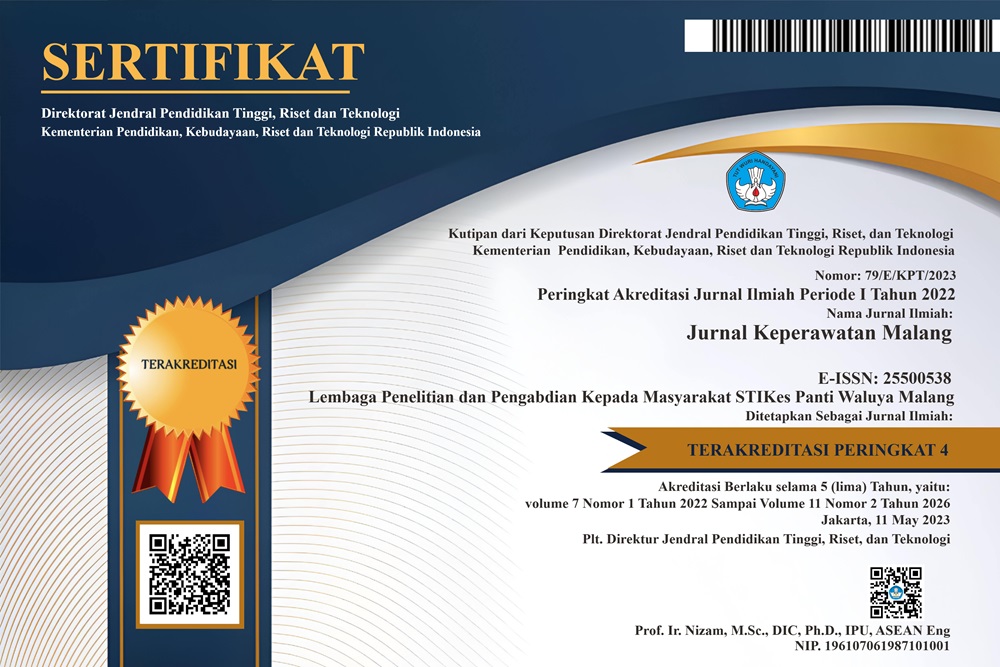QUALITY OF LIFE OF PULMONARY TUBERCULOSIS PATIENTS BASED ON THE BODY MASS INDEX
DOI:
https://doi.org/10.36916/jkm.v10i1.277Keywords:
IMT, Quality of Life, Pulmonary TBAbstract
Background: Tuberculosis is an infectious disease caused by Mycobacterium tuberculosis, which can attack various organs in the body, especially the lungs (pulmonary TB). Body mass index is one of the factors related to the quality of life of pulmonary Tb patients because it can influence health conditions and the body's resistance to fighting tuberculosis infection.
Purpose: To determine the relationship between body mass index and quality of life in pulmonary TB patients
Methods: This type of research uses quantitative descriptive with a cross sectional approach. The samples in the study were all adult pulmonary TB patients undergoing inpatient or outpatient treatment, taken by accidental sampling of 38 respondents according to the inclusion and exclusion criteria determined by the researchers. The instrument used in this research was the WHOQol BREF questionnaire
Result: The results of the univariate and bivariate Spearman correlation tests showed that there was a relationship between body mass index, body mass index and quality of life in the environmental domain (p-value 0.008). There is no relationship between body mass index and quality of life in the domains: physical, psychological and social health (p- value 0.246: 0.493: 0.504).
Implication: The results of this research can be used by health workers as a basis for health workers to improve the quality of life of pulmonary TB patients through health programs that focus more on nutritional status and body mass index
Downloads
Published
Issue
Section
Citation Check
License
Copyright (c) 2025 Rusmia Wulansari, Fransisca Anjar Rina Setyani, Scholastica Fina Aryu Puspasari

This work is licensed under a Creative Commons Attribution-ShareAlike 4.0 International License.












